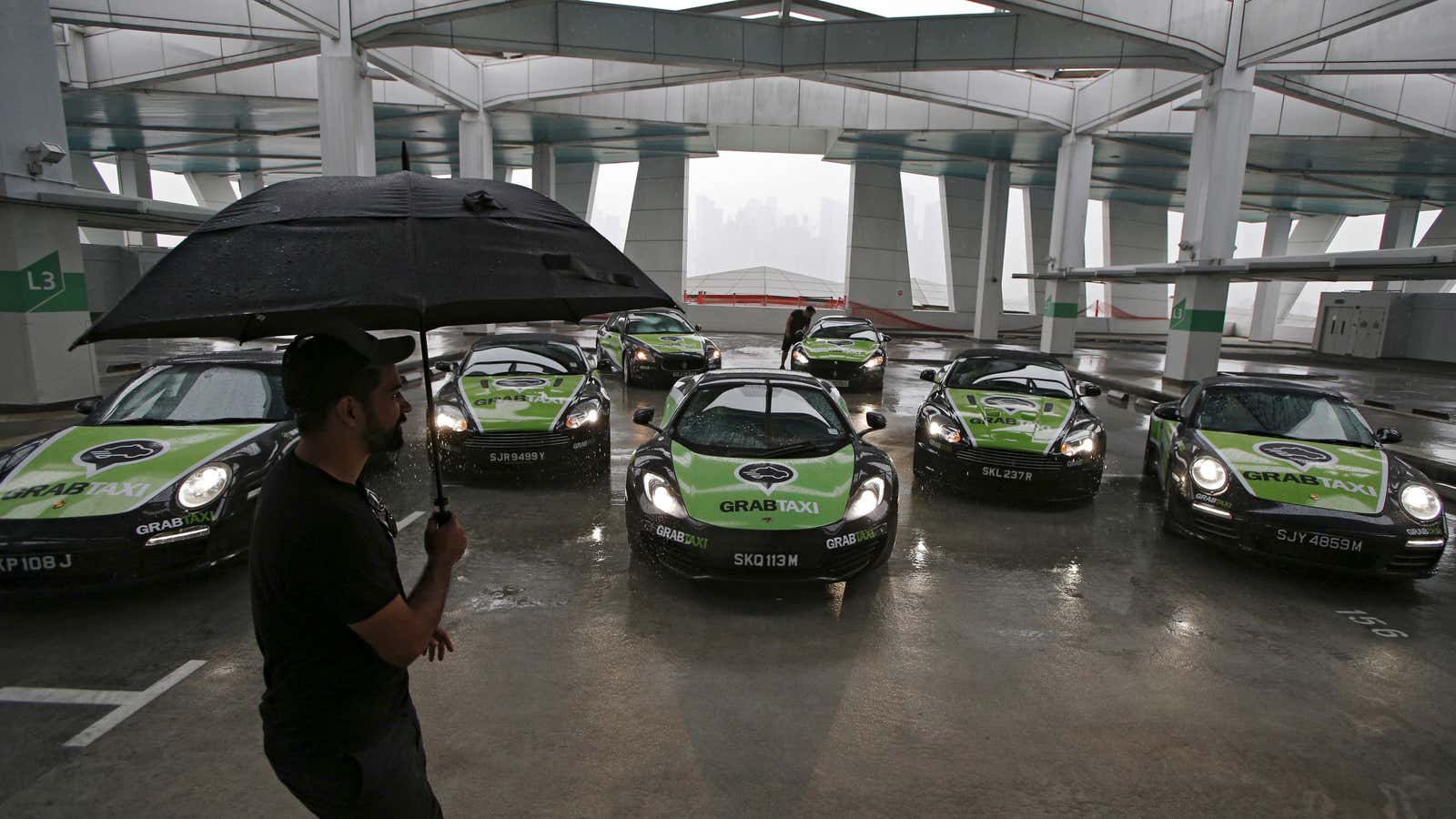Uber and China’s Didi Chuxing were once rivals. Then, Didi bought Uber and became its friend. Now, days later, they’re enemies again. Maybe.
Didi Chuxing and Softbank are set to invest in a round that could top $600 million in Grab, Uber’s main rival in Southeast Asia, according to Bloomberg. A source tells Quartz that Didi is in talks to invest up to $100 million in convertible debt. The investment, assuming it goes through as planned, will further the competition between Uber and Didi for global dominance, just as the two are pairing up in China.
Grab declined to comment on the report, and representatives for Didi did not respond immediately.
While little known in the United States or Europe, Grab has been fighting Uber for years in Thailand, Indonesia, Vietnam, Singapore, Malaysia, and the Philippines. Like Didi, it originated as an app that aggregated city taxis, and later expanded into private car hailing.
Last year Didi contributed to a $350 million investment in Grab. That investment, along with similar ones for India’s Ola and Lyft in the US, signaled that Didi was forming an “anti-Uber alliance” with the largest non-Uber ride-hailing companies on earth.
Meanwhile, Didi’s deal for Uber’s China operations this week saw Uber bow out of China as gracefully as it could after two years of burning cash. The two companies agreed Uber would fold its China operations into Didi in exchange for a 17% equity stake in the combined Chinese entity, and also receive a $1 billion investment from Didi.
That investment suggest that instead of being anti-Uber, Didi might become an ally. $1 billion was more than the amount of money that Didi had funneled to both Ola and Grab individually at that point. With China now at a truce, Uber could theoretically use the new funds to dominate Southeast Asia, India, and the US.
But Didi’s investment in Grab means it is going head-to-head against Uber again. Grab and Uber are competing fiercely in Southeast Asia, including driving down ride fares to “unsustainable levels” in some markets—just at Uber and Didi did in China.
Right now, Grab likely leads Uber when measured on daily ride hails, as it is in more cities and works with both taxis and private cars. Financially, however, Uber might be better off. The company is reportedly profitable in Singapore, while Grab’s losses in the city are growing faster than its revenues.
There’s nowhere else for Grab to put its new funds except for fighting Uber, and to a lesser extent Go Jek, which dominates Indonesia’s bike-hailing market.
What was once a black and white rivalry has turned into a complicated Knights and Knaves riddle. If Uber owns a stake in Didi and Grab beats Uber, does Uber win? If Uber beats Ola and Grab, does Didi win? If Didi buys Grab—which could be possible, as leaked financials suggest it’s struggling—will it continue to fight Uber in Southeast Asia?
No one knows for sure. When Didi CEO Jean Liu was asked to comment on the Uber Didi merger, she said “our love will last till the end of time.” She might have meant two days.
